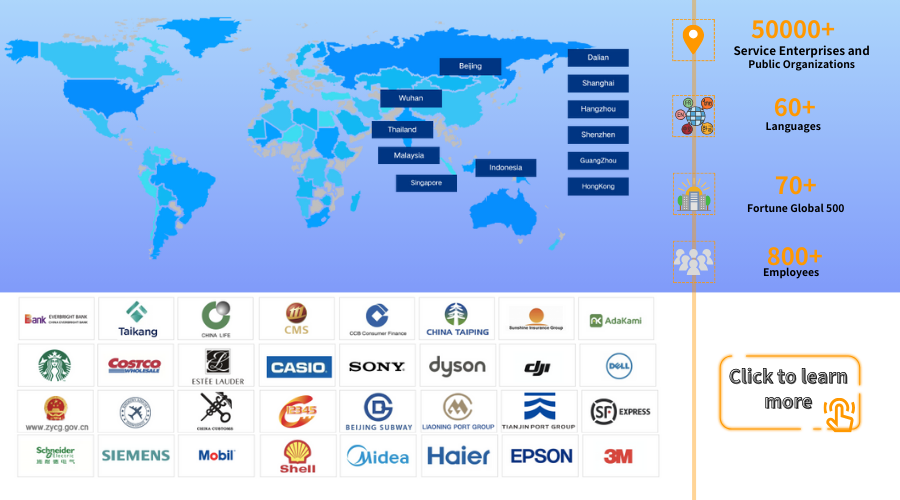With the rapid development of the automotive industry, new energy vehicles (NEVs) and gasoline-powered vehicles have formed an intense competitive landscape in the market. Beyond competition in areas such as technological R&D, product performance, and pricing strategies, the customer service sector has gradually become a key battlefield for the two camps to compete for market share and enhance brand competitiveness. In-depth exploration of the competition in
customer service between the NEV and gasoline-powered vehicle industries is of great significance for understanding the development trends of the automotive market.
I. Current Status of Customer Service in the NEV and Gasoline-Powered Vehicle Industries
(I) Customer Service in the NEV Industry
As an emerging industry, the NEV sector is actively exploring innovative models in customer service. Due to the relatively complex technology of NEVs, which involves core components such as batteries and electronic control systems, customers have numerous questions regarding vehicle usage, maintenance, and repairs. Therefore, NEV enterprises generally attach great importance to building an integrated online-offline service system.
- Online Services: Through intelligent customer service systems, official APPs, and other channels, they provide 24/7 online consulting services to address customer questions about vehicle charging, range, software updates, and more.
- Offline Services: They are accelerating the deployment of after-sales service outlets and training professional technical maintenance teams to meet the unique maintenance needs of NEVs, such as battery testing and replacement.
(II) Customer Service in the Gasoline-Powered Vehicle Industry
The gasoline-powered vehicle industry has a long development history and has established a relatively mature customer service system. The traditional 4S store model (Sales, After-sales Service, Spare Parts, and Information Feedback) is the main pillar of customer service for gasoline-powered vehicles. After years of development, gasoline-powered vehicle enterprises have accumulated rich experience in service process standardization and service quality control. However, with changes in the market environment and the upgrading of consumer demands, the traditional service model also faces challenges such as improving service efficiency and digital transformation.
II. Competitive Focuses of Customer Service Between NEV and Gasoline-Powered Vehicle Industries
(I) Service Response Speed
In the fast-paced lifestyle, customers have increasingly high requirements for service response speed.
- NEV enterprises, relying on digital service tools, can achieve rapid responses to customer inquiries. For example, intelligent customer service robots instantly answer common questions, and big data analysis is used to predict customer needs and proactively push service information.
- The gasoline-powered vehicle industry needs to accelerate the optimization of service processes and use digital tools to reduce customer waiting time—such as online reservation systems to reasonably arrange maintenance schedules and improve service efficiency.
(II) Service Professionalism
The technical characteristics of NEVs determine their high requirements for service professionalism. As the core component of NEVs, batteries have attracted much attention regarding their performance, lifespan, and safety. NEV enterprises need to train professional maintenance personnel proficient in battery technology and electronic control systems to provide customers with accurate fault diagnosis and maintenance solutions.
While the gasoline-powered vehicle industry has profound technical accumulation in mechanical maintenance, it also needs to continuously enhance service personnel’s professional knowledge and skills in areas such as intelligent driving assistance systems and vehicle networking to adapt to the trends of intelligence and connectivity.
(III) Service Personalization
Consumers’ demand for personalized services is growing, which is particularly evident in automotive customer service.
- NEV enterprises collect information such as customers’ driving habits and charging data to customize personalized vehicle usage suggestions and service plans. For instance, they recommend the most suitable charging time and location based on customers’ daily driving mileage and charging habits.
- Gasoline-powered vehicle enterprises can analyze customers’ car purchase history and maintenance records to provide personalized services such as vehicle upgrades and accessory recommendations, meeting customers’ diverse needs.
(IV) Service Experience Innovation
NEV enterprises are more innovative in customer service experience. Some enterprises have built immersive customer experience centers, allowing customers to personally experience the intelligent technology and environmental protection concepts of NEVs. They also enhance interaction and communication among customers through online communities and owner clubs, boosting customers’ sense of brand belonging.
Gasoline-powered vehicle enterprises are also actively exploring new service experience models—such as launching door-to-door vehicle pickup and delivery services and vehicle usage training courses—to improve customer satisfaction.

 Customer Service& Support Blog
Customer Service& Support Blog


